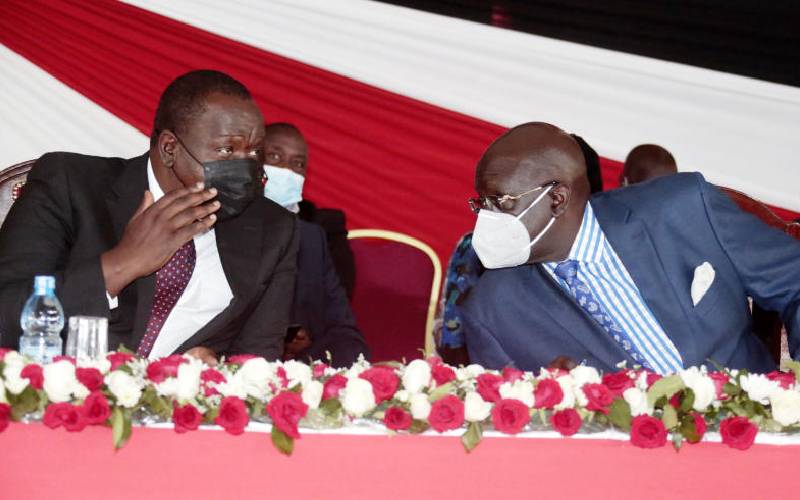×
The Standard e-Paper
Join Thousands Daily

Interior CS Fred Matiangi and Education CS Prof. George Magoha consult during the launch the 2021 National Examination period and issuance of security padlocks at the Kenya School of Government (KSG) on February 18, 2022. [Boniface Okendo, Standard]
On the afternoon of March 24, 2016, then Education Cabinet Secretary Fred Matiang'i convened a press briefing at his Jogoo House office to make a major announcement on national examinations.